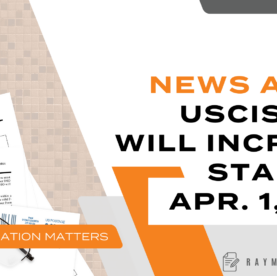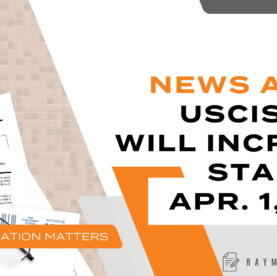Obama Immigration Proposal
Obama Sets Immigration Changes for 2010
GUADALAJARA, Mexico — Flanked by his counterparts from Mexico and Canada, President Obama on Monday reiterated his commitment to pursuing comprehensive immigration reform, despite his packed political agenda and the staunch opposition such an initiative is likely to face.
Mr. Obama predicted that he would be successful but acknowledged the challenges, saying, “I’ve got a lot on my plate.” He added that there would almost certainly be “demagogues out there who try to suggest that any form or pathway for legalization for those who are already in the United States is unacceptable.”
But in the most detailed outline yet of his timetable, the president said that he expected Congress, after completing work on health care, energy and financial regulation, to draft immigration bills this year. He said he would begin work on getting the measures passed in 2010.
“Now, am I going to be able to snap my fingers and get this done? No,” the president said. “But ultimately, I think the American people want fairness. And we can create a system in which you have strong border security and an orderly process for people to come in. But we’re also giving an opportunity for those who are already in the United States to be able to achieve a pathway to citizenship so they don’t have to live in the shadows.”
The president’s comments came during a news conference at the end of a summit meeting of North American leaders aimed at increasing cooperation in the region and resolving some of the issues that have long strained trilateral relations among the countries, whose people and economies depend heavily on one another.
During the meetings, which began Sunday afternoon, Mr. Obama, President Felipe Calderón of Mexico and Prime Minister Stephen Harper of Canada discussed climate change and clean energy, swine flu, immigration, trade and organized crime. While it was clear at the news conference that the three leaders had not reached any significant new agreements, they expressed understanding for one another’s positions and vowed to keep working to resolve outstanding disputes.
Mr. Harper, for example, stood by a decision a month ago to require Mexicans to apply for visas but said that the problems were Canada’s, not Mexico’s. “It is simply far too easy to make a bogus refugee claim as a way of entering the country,” he said. “And we have to change that.”
A “Buy American” provision attached to the United States stimulus package has ignited a political storm in Canada. But on Monday, Mr. Obama played down the scope of the program, saying it was something he had grudgingly accepted to achieve the greater purpose of pumping money into America’s flailing economy.
“I think it’s important to keep this in perspective,” Mr. Obama said. “This in no way has endangered the billions of dollars in trade taking place between our two countries.”
Mr. Obama offered a spirited defense of Mr. Calderón’s efforts to rein in the drug cartels, a fight that has left nearly 4,200 people dead this year. Recently, Senator Patrick Leahy, a Vermont Democrat, raised concerns about human rights abuses in the drug war, and Democratic legislators have threatened to withhold some financial support.
At the news conference, Mr. Obama said unequivocally that he would push for continuing America’s support for the Mexican effort, adding, “The biggest, by far, violators of human rights right now are the cartels themselves that are kidnapping people, extorting people and encouraging corruption.”
Mr. Calderón issued his own passionate defense, saying, “The struggle, the battle, the fight against organized crime is precisely to preserve the human rights of Mexican people.”
The Mexican Supreme Court supported the army on Monday by declining to take up a case pushed by human rights advocates that challenged the use of military prosecutors, instead of civilian ones, in pursuing charges against rogue soldiers.
If there were divisions on other issues, all three leaders seemed united in their support for Manuel Zelaya, the Honduran president who was ousted June 28 in what countries around the world have condemned as a coup.
“Let me be very clear in our belief that President Zelaya was removed from office illegally, that it was a coup and that he should return,” Mr. Obama said. He dismissed as “hypocrisy” the criticism from some in Latin America who say the United States has done too little to pressure Honduras’s de facto government to return Mr. Zelaya to power — among them Mr. Zelaya himself.
“The critics who say that the United States has not intervened enough in Honduras,” he said, “are the same people who say that we’re always intervening, and that the Yankees need to get out of Latin America.”
Because of Mr. Zelaya’s ouster, the United States has supported suspending Honduras from the Organization of American States and has cut $16.5 million in military assistance. The United States, which is Honduras’s largest trading partner, has been reluctant, however, to call for tougher economic sanctions.
Critics of Washington’s approach, led by President Hugo Chávez of Venezuela, accuse the United States of placating the small group of Honduran elite who are among those who support Mr. Zelaya’s removal. Senior administration officials have said they were concerned about destabilizing the third-poorest country in the hemisphere.





